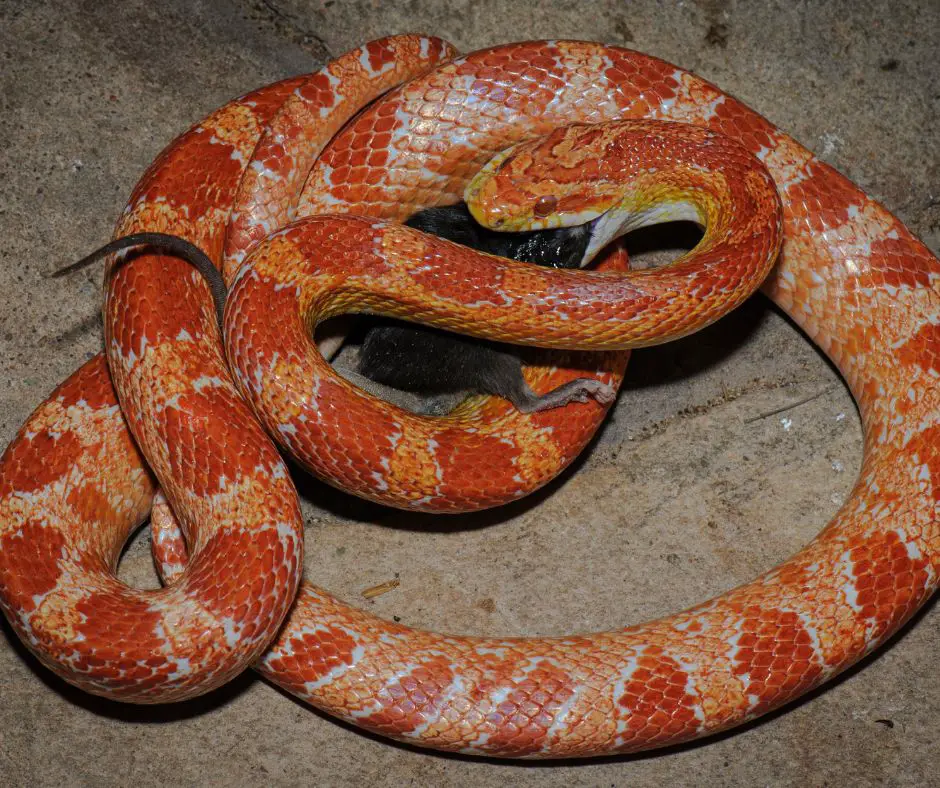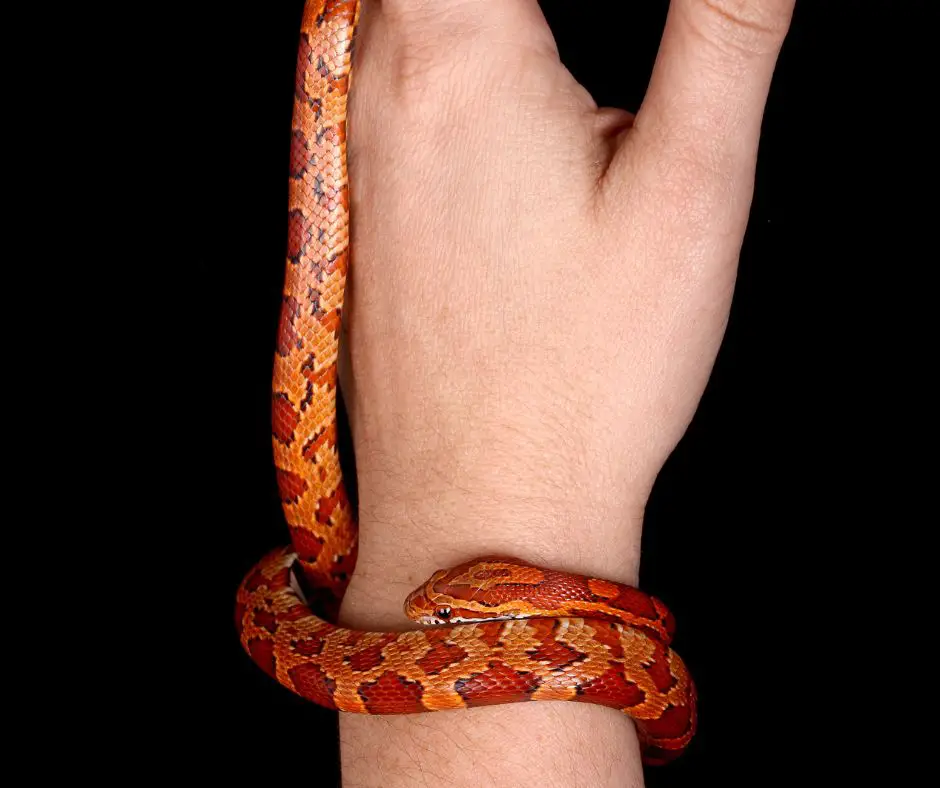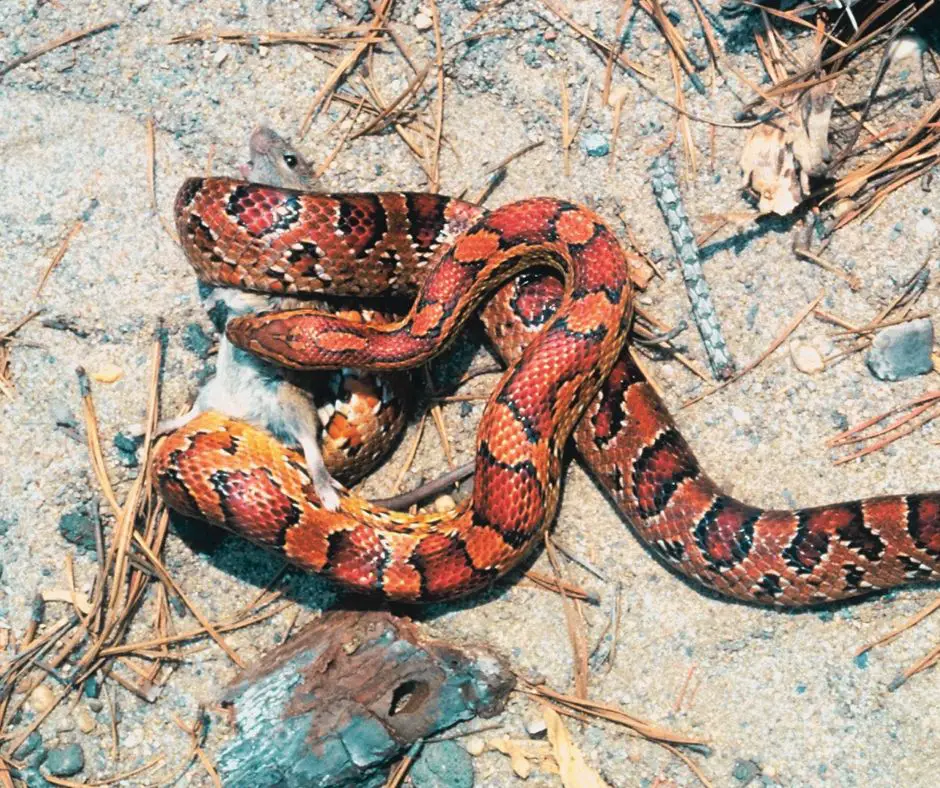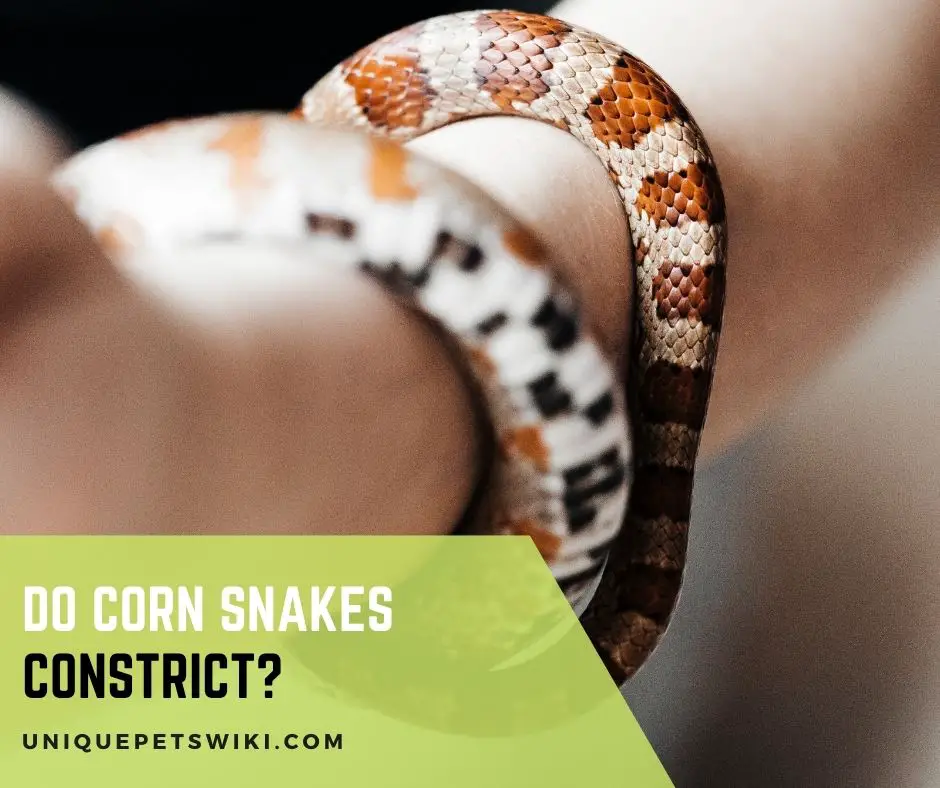Corn snakes are medium-sized snakes commonly found in the southeastern United States. They are popular pet snakes due to their calm personality, and it is quite easy to care for them. They are nonvenomous snakes, and you may wonder if corn snakes can constrict as a beginner hobbyist.
Yes, corn snakes can constrict. They usually bite and latch onto their prey with their sharp teeth while they coil around it. Corn snakes then kill their prey by constricting around it while squeezing it until it stops breathing.
Corn snakes are considered a common constrictor in the pet trade. In this article, we will break down everything you need to know about corn snake constricting.
Contents
Do Corn Snakes Constrict?

Yes, corn snakes are constrictors and are known to kill their prey by constriction. They usually grab their prey with their teeth, then start tangling around it until it loses its breath before swallowing it whole.
However, corn snakes don’t usually constrict that much at all if it is tiny, as it is more concerned about getting the food down its neck as fast as possible. It will begin to constrict as it grows, and the food becomes larger.
Your corn snake may not even constrict if you feed it defrosted dead prey as they will just swallow it.
How Do Corn Snakes Constrict?
Since corn snakes are nonvenomous species, they usually constrict to kill their prey. A corn snake will first use their teeth to get a firm grip on its prey, and it will then quickly wrap its muscular bodies around the prey tightly.
The corn snake will then squeeze and constrict the prey until it suffocates and dies. Your snake will then start to swallow their prey after it dies.
Are Corn Snakes Safe to Humans?

Yes, corn snakes usually try to eat prey smaller than them. Therefore, corn snakes are safe for humans as they are too big for corn snakes to digest. So, your corn snakes will not even attempt to constrict you.
Furthermore, corn snakes have slender bodies and are not strong enough to constrict a human. This means you don’t have to worry about waking up to your corn snake trying to squeeze you to death while you sleep.
Are All Snakes Constrictors?
No, it is not all snakes that use constriction to kill their prey. Constriction is a common method used by nonvenomous snakes to kill or subdue their prey as they don’t have venom. On the other hand, venomous snakes use venom to kill or immobilize their prey instead of constricting them.
How to Encourage Pet Snakes Constrict

Generally, snakes don’t really like wasting their energy and will just concentrate on swallowing their prey if it is already dead. Therefore, your snake may not be constricting on its prey if you feed it with freeze-dried prey.
However, you can encourage your pet snake to constrict by feeding it using a tweezer. Here are steps that you can follow to encourage your snake to constrict.
- Use a tweezer to hold the mouse by the tail while you shake it in front of your snake.
- Pull the mouse away once your corn snake strikes it.
- Shake the mouse in front of your snake again and allow it to grab it.
- Continue to tug the mouse’s tail to encourage the snake to constrict.
FAQs
Do corn snakes have fangs?
No, corn snakes are nonvenomous snakes and do not have fangs or venom. However, they have about 25-30 small teeth used for grabbing their prey when constricting.
Why Is My Corn Snake Constricting?
Corn snakes usually constrict when trying to strangle their prey to feed on it. It is also possible for your corn snake to constrict when around your hand or other body parts. However, they do this to try and stay secure and avoid falling off.
What snakes are not constrictors?
Generally, most venomous snakes with fangs are not constrictors. This is because they can inject venom into their prey to kill or immobilize it before swallowing it instead of straining it to death.
Is it likely for a corn snake to constrict a human?
There is no chance that a corn snake can constrict a human. Corn snakes are medium-sized snakes and will only try to prey on something smaller.
However, humans are big for corn snakes to digest and usually avoid constricting humans. Furthermore, you can easily unwrap yourself from a corn snake’s grip.
How do you escape a constrictor snake?
Although constriction can be scary and surprising, you need to stay calm as it is not an immediate death sentence. Here are steps that you can follow to escape from constrictor snakes:
– Try to get your arm in between your neck and the snake as soon as possible to help ensure you don’t pass out.
– Try to find the tail of the snake.
– Unwrap the tail from your body, as snakes are not that strong in their tails.
– Continue unwrapping until you reach below the head of your snake.
Wrapping Up
Corn snakes are considered constrictors as they need to squeeze their prey into submission before swallowing it whole. Constricting is the method used by corn snakes to get their meals in the wild. However, your corn snakes may stop constricting in captivity if you feed them with freeze-dried mice.
You should also note that corn snakes do not pose any threat to humans, and you don’t really have to worry about them constricting you.
